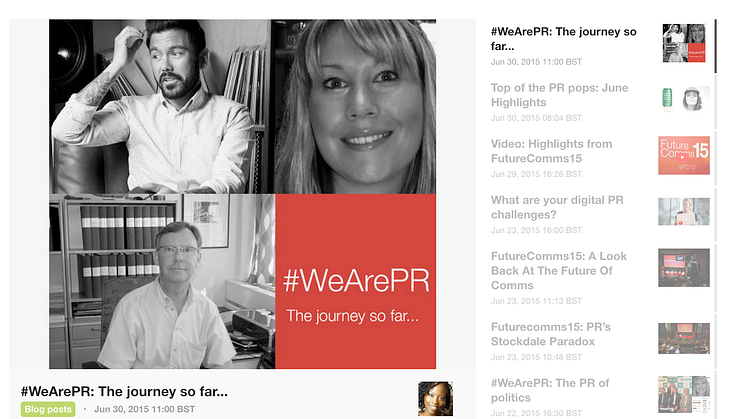
Blog post -
Top 5 Channels Preferred by Journalists
Ever since the first press release delivered the news of a train derailment in Atlantic City in 1906, the press release has been an important tool for disseminating news by public relations professionals. But according to some pundits, press releases themselves have been derailed in today's high-speed, hyper competitive, digital world.
Press Release Is Alive and Well
However, the news of the death of the press release is premature. If anything, press releases are enjoying a comeback of sorts. It turns out that they are the perfect format to share news about an organisation, as well as relevant contact information needed for further information and follow-up. Whether a communication channel is online or off-line, the means of disseminating the facts and details of a newsworthy item must be quick, efficient and useful. The traditional press release has delivered on that promise for decades.
Journalists find them indispensable as well. A Mynewsdesk research study of more than 2,000 journalists in Canada, United States, Germany, United Kingdom and several other countries revealed that press releases rank number two of the top five channels where they discover stories. First on the list in the "Journalism Trends 2016" report is personal connections. Second is press releases sent through email, followed by social media, conducting research on search engines and word-of mouth.
Personal Relationships
Whether proven vehicles like press releases or modern channels like social media are used to get the word out about a project, organization or client, personal relationships remain the core foundation for journalists and PR agencies.
Journalists from Mashable, Techcrunch, Fast Company, New York Times and other publications told BuzzSumo recently they get 80-100 pitches from email alone every day. That's why editors, broadcasters, communicators and journalists are more apt to respond to a pitch or news release when it comes from somebody they know.
Sending out an email blast or social media broadcast without doing the groundwork is a losing proposition. Email, social media and press releases are important communication channels. But personal relationships built up over time are the glue that holds every good publicity effort together. An easy way to do that is to help reporters long before you need their help — when there is no benefit in it for you.
Social Media
Twitter, Facebook and other high-profile social media platforms have become the go-to source for breaking news, from the Hudson River plane landing to the latest gossip from London. It's no wonder that social media has become a prominent channel for publicity professionals. In a report on media research by Vocus, more than 75% of journalists surveyed shared that the way they receive pitches on social media is via Facebook.
Search Engines
The Internet has proven to be a powerful tool for reporters researching background and details on stories. However, it has become cluttered over time as digital publishing creates mountains of new material every day. The trick is for you to leverage search terms and advanced refinements to filter the results effectively.
Word of Mouth
It's not as sexy as social media and the digital frontier, but plain old word of mouth is an important channel for you to uncover high-value stories. Both the " buzz on the street" and insight from inside sources with access behind the scenes are important tools to get the freshest, most relevant information.
Find out more about the latest developments in journalism. Click here to download the latest Mynewsdesk eBook, "Journalism Trends 2016."






